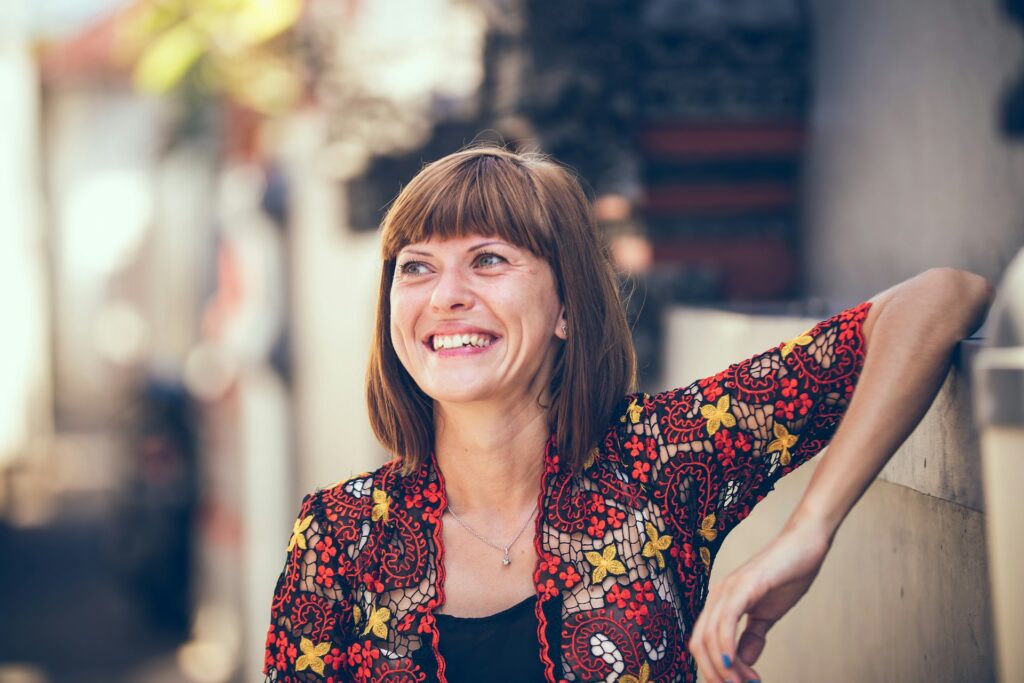Sometimes growth doesn’t come in the form of a big breakthrough.

It looks like small, subtle changes in the way you see things—where something that once felt heavy starts to feel lighter, or a pattern suddenly clicks into place. If you’re noticing these signs, you might already be moving forward without even realising it—and honestly, you should be proud of yourself!
1. You’re questioning your initial reactions instead of assuming they’re facts.

Where you once immediately accepted your emotional response as truth, now you pause and wonder, “Is that really what’s happening?” That gap between reaction and interpretation means your perspective is stretching. It doesn’t mean you’re doubting yourself; it means you’re getting better at noticing nuance. That’s growth. When you start questioning the story your emotions are telling, it’s a sign your self-awareness is catching up with your experience.
2. You’re more curious than defensive.

In the past, any hint of criticism or disagreement may have made you shut down or push back. Now, even if it stings a little, you’re more open to asking questions and trying to understand where someone’s coming from. The change from reacting to exploring shows you’re moving from survival mode into reflection. You’re less focused on being right, and more focused on seeing the full picture, even if it’s uncomfortable.
3. You’re less attached to being understood.

You’re starting to realise that not everyone will get it—and that’s okay. You no longer feel the same pressure to explain your every thought or choice just to be seen in the “right” way. That peace you’re starting to feel when misunderstood? It means you’re building trust in yourself. You know your motives, and you’re learning that clarity within is more sustainable than constant external validation.
4. You’re noticing patterns instead of blaming people.

Rather than focusing on who did what, you’re stepping back and seeing the bigger cycles that keep repeating. Whether it’s in family, friendships, or within yourself, you’re starting to map out how certain dynamics play out over and over. That perspective allows for deeper insight without the same emotional charge. When you start seeing the structure instead of just the symptoms, you’re already moving toward something more empowered.
5. You’re more focused on what you can change, not what you can’t.

Where you once got stuck replaying what someone else said or did, you’re now putting more energy into your side of the situation. You’re thinking about your boundaries, your choices, and how you respond going forward. That change in focus is powerful. It’s a sign that you’re moving from frustration into agency—from hoping other people will change, to realising you already have tools you can use now.
6. You’re giving yourself more grace than before.

You’ve stopped tearing yourself apart for not knowing better sooner. Instead of obsessing over what you “should’ve done,” you’re starting to recognise that you did what you could with what you knew at the time. Compassion isn’t soft—it’s transformative. It means you’re healing enough to see yourself as human, not broken. That makes everything that comes next feel more possible.
7. You’re no longer afraid to disappoint the wrong people.

Trying to keep everyone comfortable used to be a full-time job. Now, you’re starting to let go of that urge, especially when it costs you your own peace. You’re learning that disappointing other people can be a side effect of honouring yourself. It still might feel uncomfortable, but you’re no longer running from that discomfort. You’re choosing honesty over approval, which shows you’re stepping into a more grounded, self-led version of yourself.
8. You’re less triggered by things that used to knock you sideways.

The things that used to leave you spiralling for hours or days now barely register the same way. That doesn’t mean you’re numb—it means your perspective has shifted enough that they no longer hold the same power over you. When you stop internalising things that used to feel personal, it’s a sign you’re healing. Your nervous system is starting to believe you’re safe, even when things around you are still messy.
9. You’re not rushing to find answers anymore.

You’re becoming more comfortable with the in-between. Instead of needing immediate clarity or resolution, you’re letting things unfold a little more naturally, even when you don’t have all the pieces yet. Having patience with the unknown means you’re building trust in the process. You know now that time reveals what pressure never could, and you’re willing to let understanding come in waves rather than on demand.
10. You’re recognising how your own story has shaped your view.

Rather than thinking your perspective is the only valid one, you’re starting to understand how your experiences, wounds, and past relationships have influenced what you expect or fear in the present. That level of reflection shows deep inner movement. It means you’re no longer blindly reacting—you’re pausing to ask, “What part of me is showing up here?” That’s where real change begins.
11. You’re being more honest about what you need, even if it’s awkward.

You’ve stopped sugar-coating your needs or hinting at them and hoping people will magically get it. Now, you’re starting to say it directly. It’s not always smooth or comfortable, but it’s getting easier each time. Having that clarity shows you’re respecting yourself more. You’re learning that your needs aren’t a burden; they’re part of how you stay grounded, safe, and connected in relationships that actually work.
12. You’re realising your worth isn’t tied to how well you handle chaos.

In the past, you may have worn emotional resilience like a badge of honour. You stayed calm, held it all together, and took pride in being the one who coped. Now, you’re starting to see that constant coping isn’t the same as thriving. That realisation means you’re no longer measuring your value by how much you can carry. You’re learning to create peace, not just survive chaos, and that’s a whole new level of self-respect.


